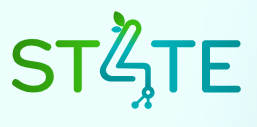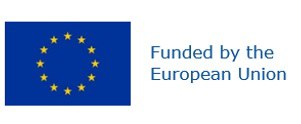ST4TE - Strategies for just and equitable transitions in Europe
 ST4TE adopts a multidimensional approach to study the relationship between the green, digital and twin transition (TT) and inequalities. The project aims to investigate the impact of the TT on inequalities among individuals and territories and explore how existing inequalities affect the transition paths creating cycles of inequalities. ST4TE uses both quantitative methods (econometrics, machine-learning and agent-based modelling) and qualitative methods (narrative interviews, case studies and workshops) to analyse different patterns of inequalities and envisage custom made policies to counterbalance the unequal effects of the TT. ST4TE objectives are: 1) Understand the different drivers of the TT and measure the progress in European regions to identify the level of regional readiness and existing or potential vulnerabilities; 2) Identify types of inequalities including income, skill- job- and health- related inequalities, as well as age/gender and other intersecting inequalities and investigate new forms of social inequality that emerge or widen due to the TT; 3) Examine how the TT can increase existing inequalities leading to a vicious cycle between higher inequality and unequal impacts of the transition. The focus will be on four drivers: policies, consumption, education and STI; 4) Model the effects of TT policies, assess their territorial impact, develop forward looking scenarios, and define pathways for knowledge-based policymaking using tools and recommendations, that will ultimately address negative socio-economic effects caused by the TT; 5) Maximise the project’s visibility by communicating and disseminating ST4TE activities and progress and support the exploitation of its results, with emphasis on policy engagement and co-design of recommendation. Overall, ST4TE will go beyond the state-of-the-art as it can have significant implications on the twin transformation of cities and regions and the design of social cohesion and place-based innovation policies.
ST4TE adopts a multidimensional approach to study the relationship between the green, digital and twin transition (TT) and inequalities. The project aims to investigate the impact of the TT on inequalities among individuals and territories and explore how existing inequalities affect the transition paths creating cycles of inequalities. ST4TE uses both quantitative methods (econometrics, machine-learning and agent-based modelling) and qualitative methods (narrative interviews, case studies and workshops) to analyse different patterns of inequalities and envisage custom made policies to counterbalance the unequal effects of the TT. ST4TE objectives are: 1) Understand the different drivers of the TT and measure the progress in European regions to identify the level of regional readiness and existing or potential vulnerabilities; 2) Identify types of inequalities including income, skill- job- and health- related inequalities, as well as age/gender and other intersecting inequalities and investigate new forms of social inequality that emerge or widen due to the TT; 3) Examine how the TT can increase existing inequalities leading to a vicious cycle between higher inequality and unequal impacts of the transition. The focus will be on four drivers: policies, consumption, education and STI; 4) Model the effects of TT policies, assess their territorial impact, develop forward looking scenarios, and define pathways for knowledge-based policymaking using tools and recommendations, that will ultimately address negative socio-economic effects caused by the TT; 5) Maximise the project’s visibility by communicating and disseminating ST4TE activities and progress and support the exploitation of its results, with emphasis on policy engagement and co-design of recommendation. Overall, ST4TE will go beyond the state-of-the-art as it can have significant implications on the twin transformation of cities and regions and the design of social cohesion and place-based innovation policies.
Project details
Scientific responsability: Ugo Rizzo
Funding source: HORIZON EUROPE
Call: HORIZON-CL2-2023-TRANSFORMATIONS-01-10
Start date 01/01/2024 - end date 31/12/2026
EU contribution: 2.999.593,75 €
EU contribution to UniFe: 295.937,50 €
Participants
- Aristotle University of Thessaloniki, Greece - Coordinator
- European Future Innovation System Centre, Belgium
- Universita degli Studi di Ferrara, Italy
- Universiteit Maastricht, Netherland
- Gran Sasso Science Institute, Italy
- Universiteit Utrecht, Netherland
- Goeteborgs Universitet, Sweden
- Climate Finance Alpha, France

